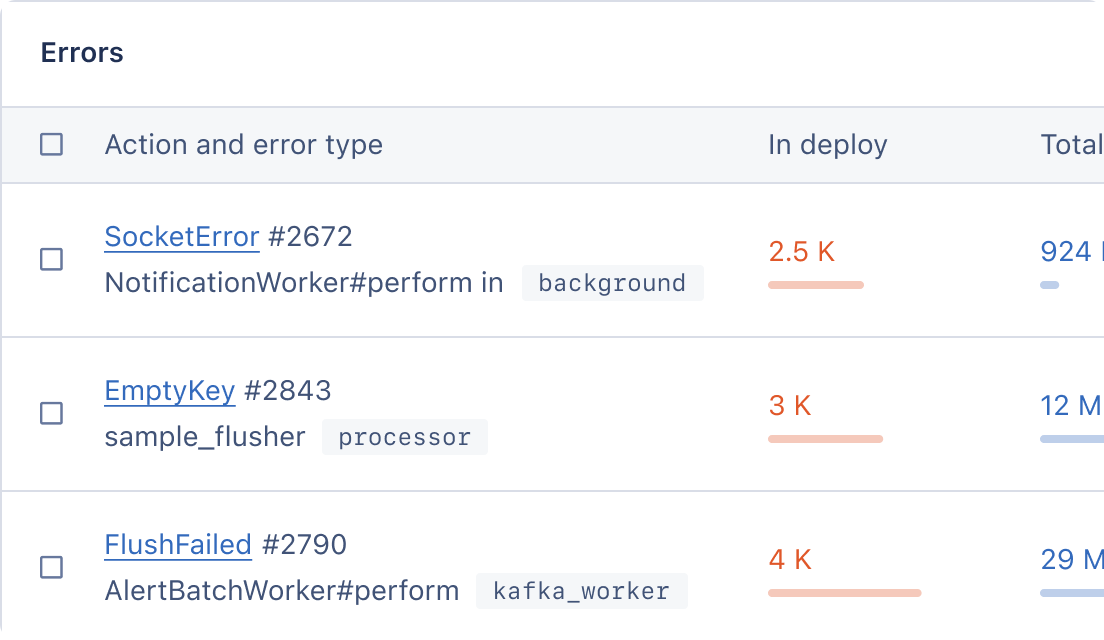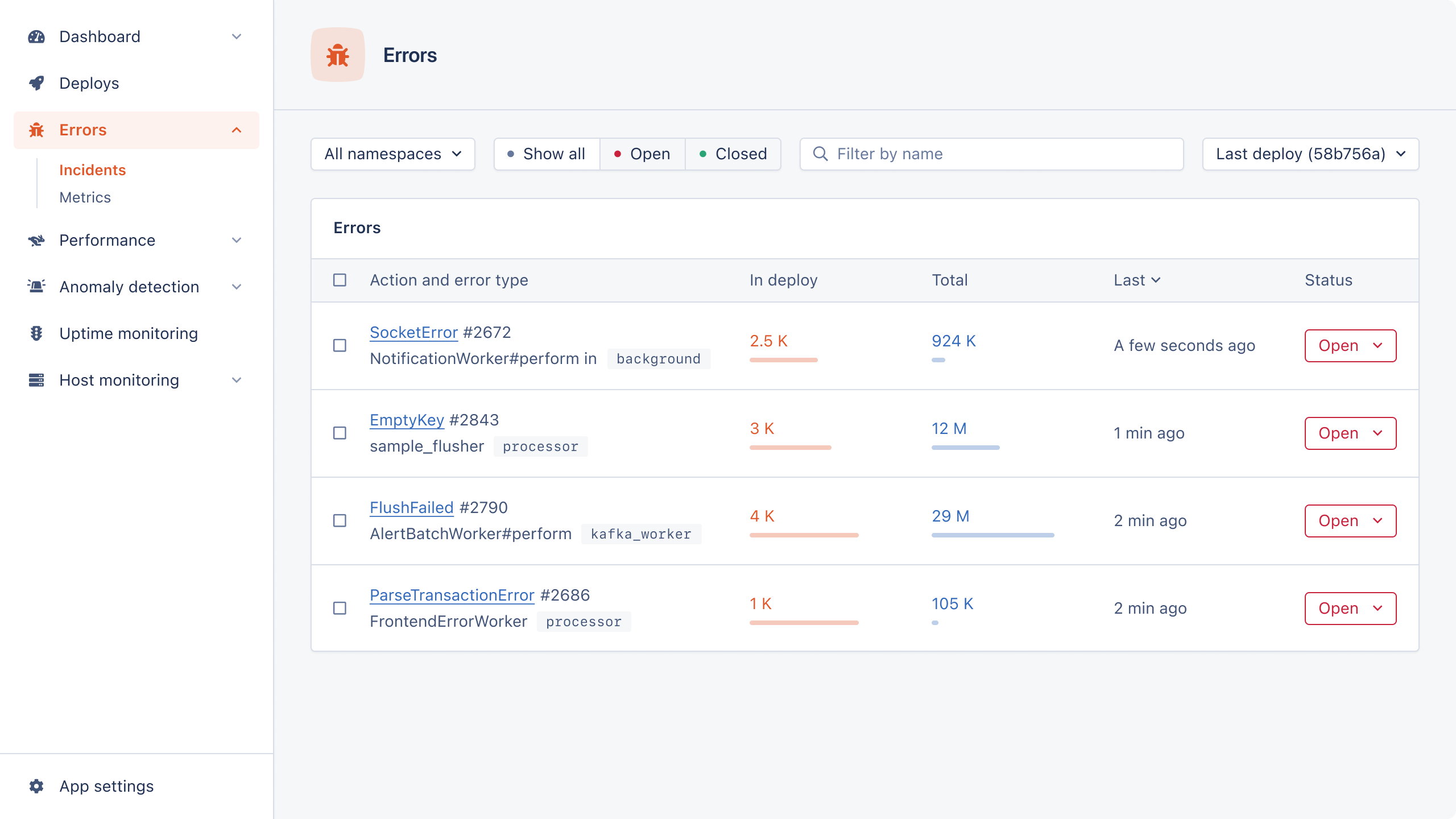
Delegation in programming refers to handing off a task from one part of a program to another. It's an essential technique in object-oriented programming, empowering clean, maintainable code by ensuring that each object or method is responsible for a specific task or behavior.
Understanding and using delegation is key to mastering Ruby and other object-oriented languages. Delegation promotes separation of concerns, making your code more modular and easier to understand, test, and refactor.
In this article, we'll dive into three ways to achieve delegation in Ruby: using explicit delegation, the Forwardable module, and ActiveSupport::Delegate (for Rails).
Let's get started!
Delegation in Ruby
Let's
begin by discussing explicit delegation — calling a method within a method. Then we'll
explore the built-in Forwardable module and how it can streamline delegation.
Lastly, we'll cover ActiveSupport::Delegate, a Rails-specific delegation tool with some
handy features.
Explicit Delegation
In its simplest form, delegation can be achieved by explicitly calling a method within another method. This approach is often employed when the delegated method belongs to a separate object or when the delegation is simple enough not to warrant the use of more advanced techniques.
Implementing explicit delegation in Ruby is straightforward. Let's take an example of a Printer class
that uses an HP object to print text:
class HP def print(text) # Actual code to print end end class Printer def initialize(printer_model) @printer_model = printer_model end def print(text) @printer_model.print(text) end end
In the example above, the print method of the Printer class explicitly delegates the formatting task to
the HP class by calling its format method. This delegation outsources the printing responsibility to another
class in a simple and readable way.
Explicit delegation is common in real-world applications, as it helps promote the separation of concerns and maintainable code. For instance, you might find this technique used in applications that require communication between different services, where one service calls another to perform a specific task.
Additionally, explicit delegation can be useful when building adapters or wrappers around third-party libraries, as it allows you to isolate the interaction with the external code.
In summary, explicit delegation is a straightforward and effective way to delegate tasks between objects in Ruby. By calling a method within another method, you can easily delegate responsibilities, making your code more maintainable and promoting the separation of concerns.
Ruby's Forwardable Module
The Forwardable module is a built-in Ruby library that provides a more streamlined and flexible approach to
delegate methods compared to explicit delegation. By including the Forwardable module in your class, you
gain access to methods like def_delegator and def_delegators, making delegation a breeze.
To get started with the Forwardable module, include it in your class and use the def_delegator and
def_delegators methods to delegate one or multiple methods, respectively. Let's revisit our Printer example with
a new Formatter class and implement the Forwardable module:
require 'forwardable' class Formatter def format(text) # Perform formatting and return the formatted text end end class Printer extend Forwardable def_delegator :@formatter, :format def initialize(formatter) @formatter = formatter end def print(text) formatted_text = format(text) puts formatted_text end end
In the example above, we've used def_delegator to delegate the format method from the Formatter class. If you need
to delegate multiple methods at once, you can use def_delegators. For example, if the Formatter class had additional
methods such as capitalize, you could delegate them like this:
class Printer extend Forwardable def_delegators :@formatter, :format, :capitalize # rest of code end
When using the Forwardable module, there are a few important potential drawbacks to consider:
- First, ensure that the target object is initialized before using delegation. Otherwise, you may encounter errors.
- Second, the overuse of delegation can lead to potential confusion in code readability, as it may become unclear which methods belong to the class and which are delegated.
- Finally, there may be a slight performance overhead when using Forwardable compared to direct method calls. However, this overhead is generally negligible in most applications.
For more in-depth information about the Forwardable module, see the Forwardable documentation.
ActiveSupport::Delegate for Rails Applications
ActiveSupport::Delegate is a delegation utility provided by Rails, offering a concise syntax for delegating methods
to associated objects. While it shares similarities with Ruby's built-in Forwardable module, ActiveSupport::Delegate
offers additional options and features tailored for Rails applications.
To use ActiveSupport::Delegate, simply call the delegate method in your class and specify the method(s) to be delegated
along with the target object. Let's revisit the Printer and Formatter example and implement delegation using
ActiveSupport::Delegate:
class Formatter def format(text) # Perform formatting and return the formatted text end end class Printer delegate :format, to: :@formatter def initialize(formatter) @formatter = formatter end def print(text) formatted_text = format(text) puts formatted_text end end
ActiveSupport::Delegate offers additional options and features that can be useful in various scenarios. For instance,
you can use the :prefix option to prepend a prefix to the delegated method. If you'd like to delegate multiple methods at
once, simply list them before the to: option:
class Printer delegate :format, :bold, :italic, to: :@formatter, prefix: true # ... end
This generates methods like formatter_format, formatter_bold, and formatter_italic in the Printer class, delegating
to the respective methods in the Formatter class.
ActiveSupport::Delegate is commonly used in real-world Rails projects to delegate methods between associated
models or objects. For example, if you have a User model that belongs_to an organization, you could delegate the name method
from the organization model to the User model like this:
class User < ApplicationRecord belongs_to :organization delegate :name, to: :organization, prefix: :organization end
This allows you to access the organization's name through a user object: user.organization_name.
In conclusion, ActiveSupport::Delegate is a powerful tool for Rails applications that enables concise and expressive delegation
of methods. By leveraging its additional options and features, you can create maintainable and well-organized code that adheres
to the principles of object-oriented programming in the context of Rails projects.
For more in-depth information about ActiveSupport::Delegate and all the available options, see the Rails ActiveSupport documentation.
Comparison of Delegation Techniques
Explicit delegation is the most straightforward approach to delegation, requiring manually defined methods that call upon the desired methods from the delegated object. Although this technique is simple and doesn't require any external libraries, it may be too verbose when delegating a growing number of methods.
The Forwardable module, built into Ruby, offers a more streamlined way to delegate methods.
By using the def_delegator and def_delegators methods, you can delegate one or multiple
methods concisely.
ActiveSupport::Delegate, part of Rails' ActiveSupport library, provides a declarative
way to handle method delegation. With a clean syntax and additional options like prefixing,
it's an expressive tool in a Rails context. Compared to explicit delegation,
ActiveSupport::Delegate is more expressive and less verbose, particularly when delegating
multiple methods. However, it requires Rails, so it's not suitable for non-Rails Ruby
projects.
Choosing a delegation technique depends on your specific needs and application. While
explicit delegation offers simplicity and clarity, the Forwardable module provides a more
streamlined approach, and ActiveSupport::Delegate offers a powerful, Rails-specific
solution. Understanding these options lets you choose the technique that best fits
your project and coding style.
Wrapping Up
From explicit delegation to using the built-in Forwardable module or the Rails-specific
ActiveSupport::Delegate, each technique offers its unique benefits and potential drawbacks.
The technique you should choose depends on your specific context, the nature of your project, and
your personal coding style.
Understanding these techniques not only broadens your Ruby programming skills but also equips you to write more modular, readable, and maintainable code. With this knowledge, you are better prepared to tackle complex problems, with eloquent design.
Happy delegating!
P.S. If you'd like to read Ruby Magic posts as soon as they get off the press, subscribe to our Ruby Magic newsletter and never miss a single post!


